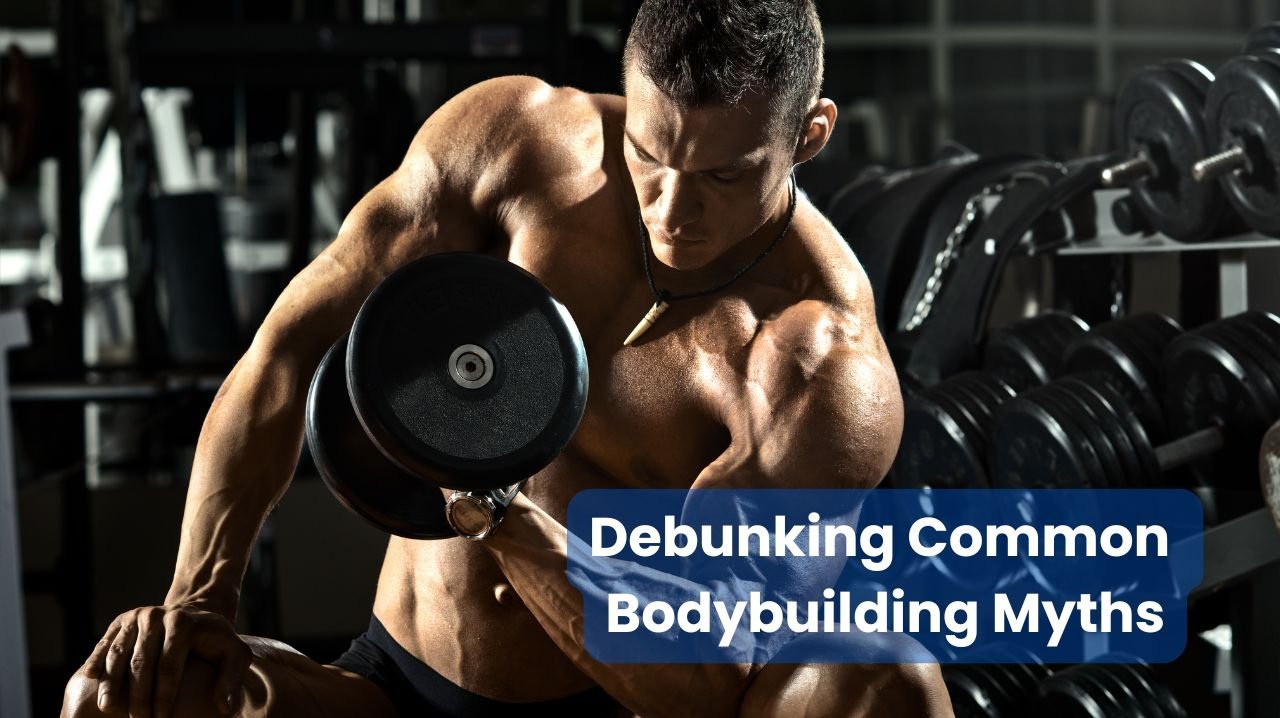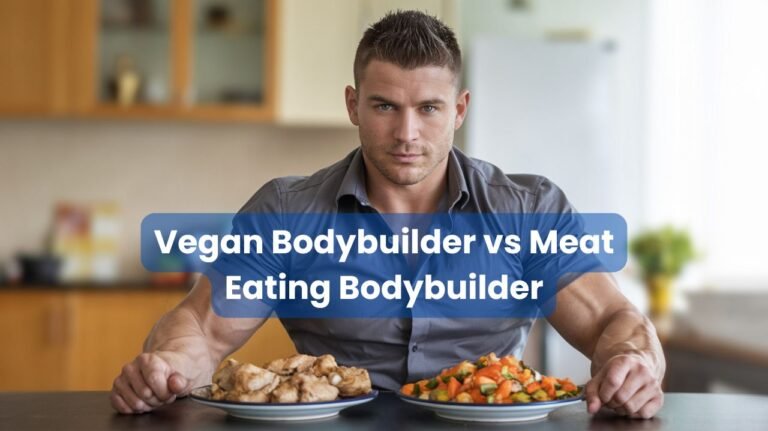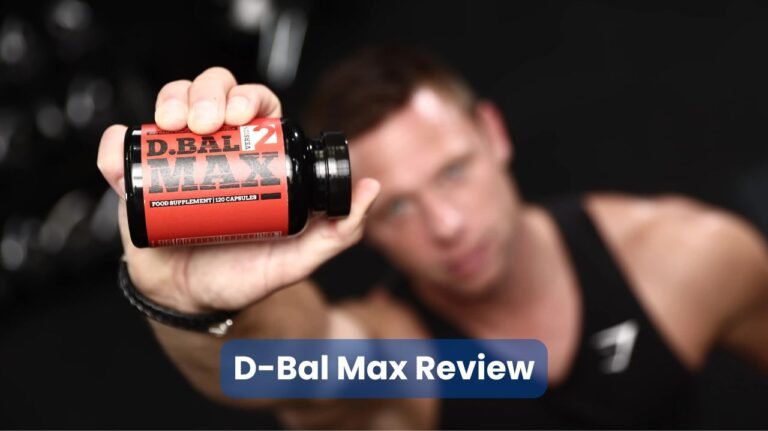Debunking Common Bodybuilding Myths
For anyone stepping into the world of bodybuilding, navigating through the sea of information can be overwhelming. Between social media influencers, gym bros, and well-meaning friends, it’s easy to get lost in the maze of myths and misconceptions.
This comprehensive guide aims to shed light on some of the most persistent bodybuilding myths and provide evidence-based facts to help you make informed decisions about your fitness journey.
👉 Pack On Muscle Mass and Get Bigger and Stronger
👉 Burn Fat and Get Seriously Ripped
👉 Get Explosive Strength and Maximum Stamina
👉 Become A Gym Beast With Legal SARMs Alternatives
The Truth About Muscle Building
Myth: You Must Feel Sore After Every Workout
One of the most pervasive myths in bodybuilding is the belief that muscle soreness equals an effective workout. While Delayed Onset Muscle Soreness (DOMS) can indicate that you’ve challenged your muscles, it’s not a necessary component for muscle growth. In fact, excessive soreness might hinder your training progress by:
- Limiting your training frequency
- Affecting your form during subsequent workouts
- Reducing your overall training volume
- Impacting your motivation and consistency
Research shows that muscle growth can occur without significant soreness, and consistent, progressive overload remains the key factor in building muscle.
Myth: You Need to Train Every Day for Results
Contrary to popular belief, more isn’t always better when it comes to training. Your muscles need adequate rest to grow and recover. Here’s what science tells us about training frequency:
- Beginners can see significant results training 3-4 times per week
- Advanced lifters might benefit from 4-6 sessions per week
- Rest days are crucial for muscle recovery and growth
- Overtraining can lead to decreased performance and potential injury
Nutrition Myths and Facts
The Protein Debate
Let’s examine some common protein myths with a fact-based approach:
| Myth | Fact | Scientific Explanation |
|---|---|---|
| You need protein immediately after workout | The “anabolic window” is much wider | Studies show you have several hours to consume protein post-workout |
| You can only absorb 30g of protein per meal | Your body can utilize more protein over time | Total daily protein intake matters more than timing |
| More protein always equals more muscle | There’s an optimal range for protein intake | 1.6-2.2g/kg of body weight is typically sufficient |
Myth: Carbs Are Your Enemy
The low-carb trend has led many bodybuilders to fear carbohydrates. However, carbs play crucial roles in:
- Providing energy for intense workouts
- Helping with muscle recovery
- Preserving muscle tissue during training
- Supporting hormone production
The key is choosing the right types and amounts of carbohydrates based on your activity level and goals.
Training Methodology Myths
Myth: Heavy Weights for Size, Light Weights for Toning
This might be one of the most damaging myths in bodybuilding. The truth is that muscle growth can occur across various rep ranges, provided:
- The sets are taken close to failure
- Progressive overload is implemented
- Total volume is sufficient
- Recovery is adequate
Myth: Certain Exercises Are “Must-Do” Movements
While some exercises are excellent choices for muscle building, there’s no single “must-do” exercise. Factors to consider include:
- Individual biomechanics
- Previous injuries
- Equipment availability
- Training goals
- Personal preferences
Supplement Facts and Fiction
Common Supplement Myths
Many beginners fall into the trap of thinking supplements are the key to success. Here’s the truth about some popular supplements:
- Creatine
- Myth: It’s dangerous for kidneys
- Fact: One of the most researched and safe supplements
- Benefit: Can improve strength and muscle gains
- Protein Powder
- Myth: It’s necessary for muscle growth
- Fact: It’s just a convenient protein source
- Benefit: Helps meet daily protein requirements
- Pre-workout
- Myth: Essential for a good workout
- Fact: Primarily provides caffeine and other stimulants
- Benefit: Can enhance focus and energy
Gender-Specific Myths
Myth: Women Will Get Bulky from Weight Training
This persistent myth keeps many women from enjoying the benefits of strength training. The truth is:
- Women typically have lower testosterone levels
- Building significant muscle mass requires specific training and nutrition
- Strength training provides numerous health benefits for women
- “Toning” is actually building muscle and losing fat
Recovery and Rest Myths
Sleep and Growth
Quality sleep is often overlooked in favor of more training or stricter dieting. Research shows that adequate sleep:
- Increases muscle protein synthesis
- Improves hormone production
- Enhances recovery
- Supports fat loss
- Maintains mental focus
Myth: Active Recovery Is Always Better
While light activity can help recovery, sometimes complete rest is better. Consider:
- Individual recovery capacity
- Training intensity
- Overall stress levels
- Sleep quality
- Nutrition status
Progress Tracking and Expectations
Myth: Transformation Should Be Quick
Social media has created unrealistic expectations about bodybuilding progress. The reality is:
- Noticeable changes typically take 8-12 weeks
- Significant transformations often require 6-12 months
- Genetics play a role in results
- Consistency matters more than intensity
- Progress isn’t linear
Evidence-Based Approach to Bodybuilding
To achieve the best results in bodybuilding, focus on these proven principles:
- Progressive Overload
- Gradually increase weights, reps, or sets
- Track your progress
- Adjust based on results
- Proper Nutrition
- Calculate your caloric needs
- Meet protein requirements
- Balance macronutrients
- Stay hydrated
- Adequate Recovery
- Prioritize sleep
- Manage stress
- Include deload weeks
- Listen to your body
👉 Boost in Focus and Energy to Help Increase Pumps and Performance
👉 Increase Gains, Promote Muscle Growth and Boost Energy
👉 Powerful Muscle Growth, Increased Blood Flow, and Enhanced Pumps
👉 Bulk-Up, Increase Gains, And Improve Recovery
Conclusion
Success in bodybuilding comes from understanding and applying scientific principles rather than following myths and misconceptions. Focus on consistency, proper form, adequate nutrition, and sufficient recovery. Remember that everyone’s journey is different, and what works for one person may not work for another. Stay informed, track your progress, and adjust your approach based on your individual results and needs.
The most important aspects of bodybuilding success are:
- Consistency in training and nutrition
- Progressive overload in your workouts
- Adequate protein and caloric intake
- Sufficient rest and recovery
- Patience and realistic expectations
- Individual approach to training and nutrition
By understanding and applying these evidence-based principles while avoiding common myths, you’ll be better equipped to achieve your bodybuilding goals safely and effectively.







